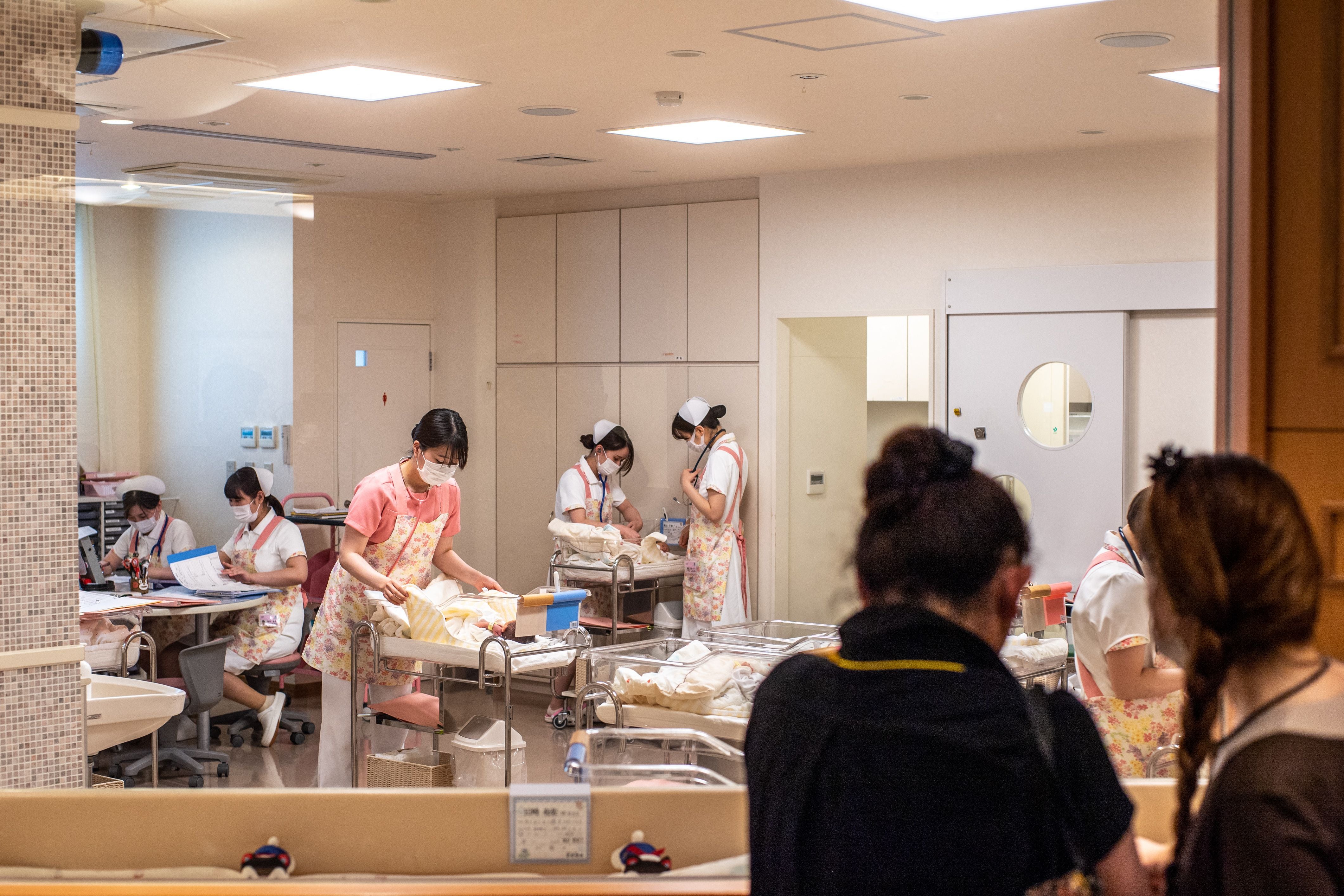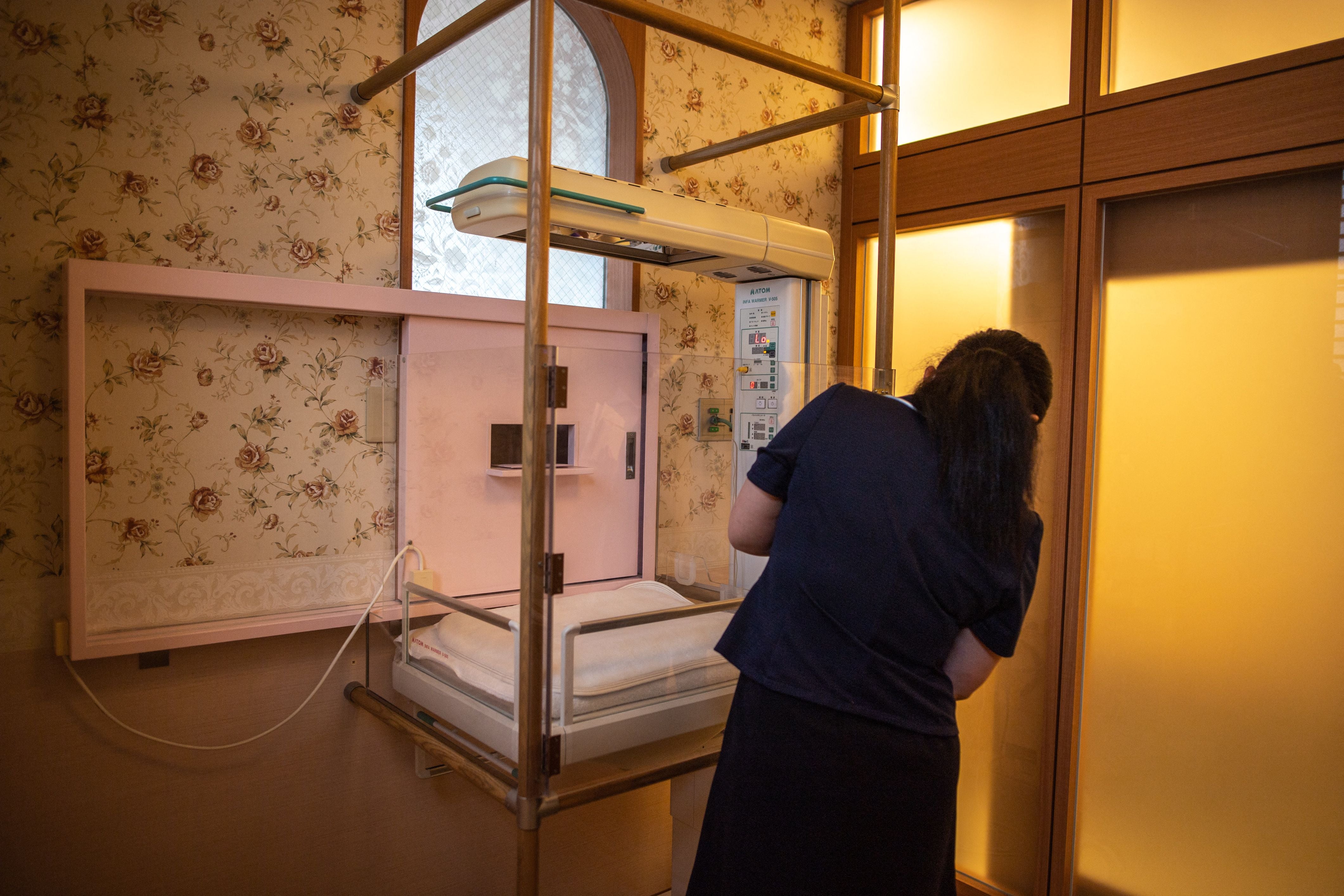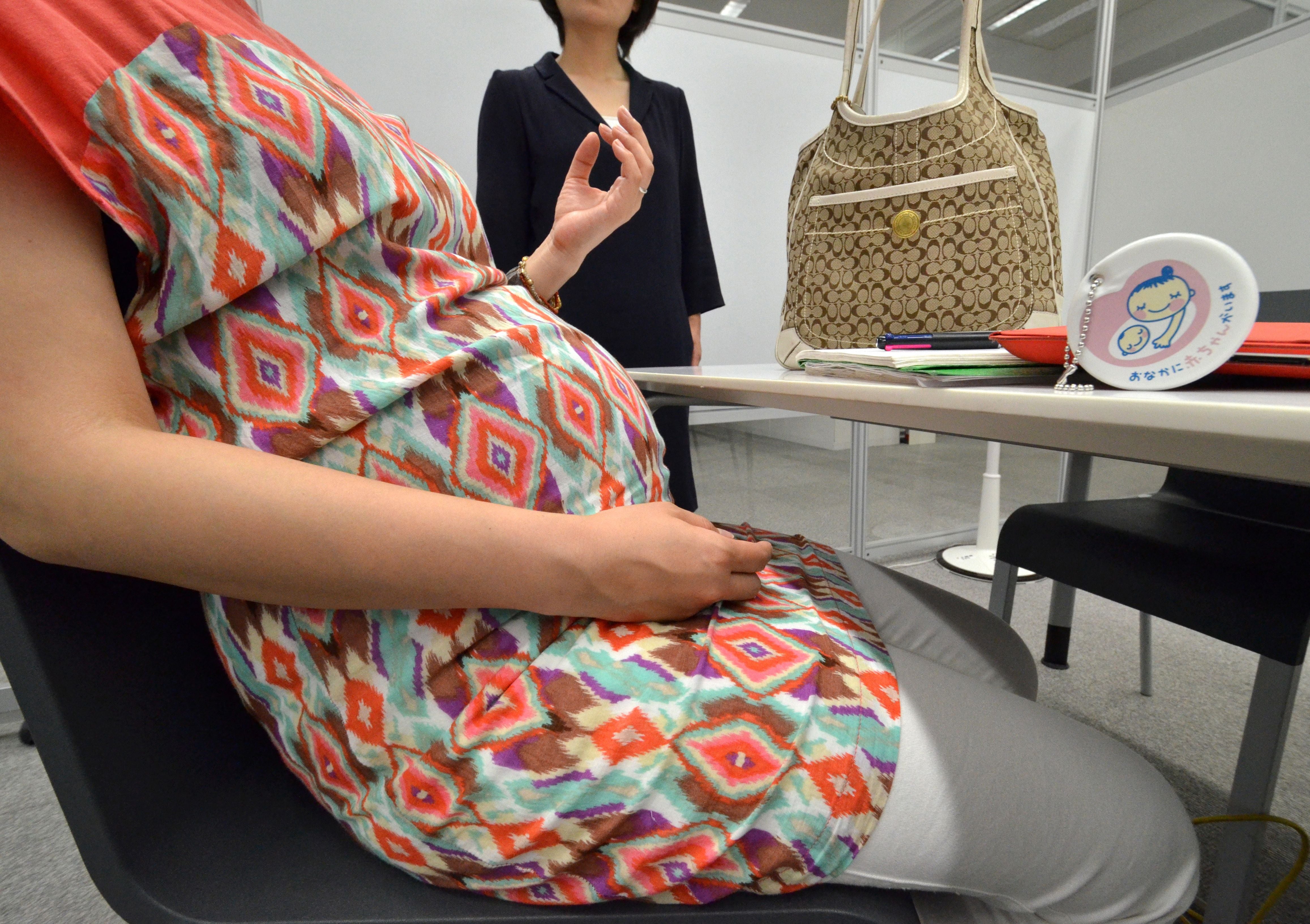
A Tokyo hospital has launched a “baby hatch”, becoming the city’s first and the country’s second medical institution to offer parents a safe, anonymous drop-off method for infants they can’t look after.
The Inochi no Basuketto, or basket of life, was set up at the San-ikukai hospital in Tokyo’s Kinshicho district on Monday and aims to prevent infant abandonment and death.
The hospital will accept infants up to four weeks old.
The baby can be placed in a basket in a secure area with a motion sensor that will alert staff immediately so someone can collect them within 30 seconds.
The hospital will work with authorities to figure out the best plan of action for the baby, including sending them to foster homes.
Hitoshi Kato, head of San-ikukai hospital, said at a press conference that the baby hatch, which will be open 24 hours, was “an emergency and final measure to avoid the abandonment of babies and child abuse deaths”.
“Such tragic incidents as newborn desertion and fatal child abuse continue to happen. I am going to make efforts to create a society where this project is no longer necessary," The japan">Japan Times quoted him as saying.
He said that “mothers and babies with nowhere to go” still existed which led to “abandonment of infants in baggage lockers, parks or beaches”.

The hospital has also launched a “confidential birth system” to prevent women with unwanted pregnancies delivering alone or in risky situations.
The system will allow women to give birth in the hospital while providing minimal identifying information about themselves.
“There are a whole series of reasons why a second baby hatch is having to open in Japan, and I have to say it makes me sad,” Yoko Tsukamoto, a professor at the Health Sciences University of Hokkaido, told the South China Morning Post. “For many people, the biggest immediate problem is the rising price of everything, starting with food.”
This week, private research firm Teikoku Databank said that major Japanese food and beverage producers were increasing prices of 4,225 products in April.
According to NHK, the price of rice went up by 80.9 per cent in February compared to 2024, the biggest increase since this information first began being recorded in 1971. Potato prices have gone up by 33.6 per cent and carrots are dearer by 27.4 per cent.
Japan opened its first baby hatch, called Konotori no Yurigago, or stork’s cradle, nearly two decades ago in 2007, in Jikei Hospital in the city of Kumamoto. As of May 2024, Jikei’s baby hatch had received 179 infants, some coming from about 1,000km away.
“There’re women out there who are ashamed that they did something horrible by getting pregnant and are so scared,” Jikei head doctor Takeshi Hasuda told AFP in 2022. “Society’s motivation to sympathise with them or help them out seems to be low, if not completely non-existent.”
Children abandoned at the hospital include many that were the “the result of prostitution, rape and incest”, Hasuda said.
“I think the most important role our baby hatch system has played so far is to provide a sort of last resort for women left alienated by society.”

The baby hatches have also faced criticism, however. The criticism stems mainly from societal beliefs that place heavy significance on the family a child is born into. Japan requires every individual’s birth to be added into a koseki or family register, which has all vital records of the family. Marriage, divorce, adoption and so on will not be legitimised if it hasn’t been recorded in the koseki.
No Japanese citizen can apply for a passport without a koseki record.
This system has “entrenched the idea in Japanese society that whoever gave birth to a child must raise the child”, Chiaki Shirai, a reproduction and adoption studies expert at Shizuoka University, told the AFP news agency. “Children who are abandoned and shown as having no family in the registry are heavily stigmatised.”
The “confidential birth system” also aims to help women deal with unwanted pregnancies safely given conservative attitudes around sex, premarital pregnancy, and abortion in Japan.
In 2017, it was found that 47 per cent of women who left their infants at the hatches had given birth at home with no medical care, which increased the chances of them getting ill.

In spite of measures instituted in 2023 by the previous Fumio Kishida government to encourage childbearing, the number of babies born in 2024 fell to a record low of 720,988, declining for the ninth consecutive year, while the number of deaths rose to a record 1.62 million.
Proponents of baby hatches argue that they provide a vital safety net for infants and mothers in a country with limited support systems for postpartum women. Experts have been calling on policymakers and social welfare organisations to rethink support systems for struggling parents, a sorely needed intervention in a nation grappling with an ageing population and declining birth rates.
Japanese politician gets death threats over call for menstrual products in restrooms
China, Japan and South Korea mulling joint response to Trump tariffs
Megaquake near Japan could kill 300,000 people and halve its GDP, new report warns
Hundreds evacuate in Japan after new wildfires break out
Japan disbands Unification Church after investigation into Shinzo Abe’s killing
Japanese restaurant chain apologises after rat found floating in miso soup







